Life
Sign up for our newsletter
We summarize the week's scientific breakthroughs every Thursday.
-
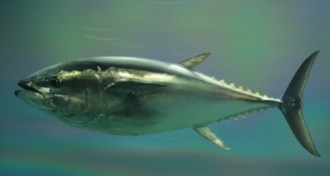 Math
MathSharks’ hunting paths may not be driven by math
Penguins, tuna, sharks and other marine hunters have been shown to use math to find food. But simulations suggest the behavior is a result of rough water, not complex calculation.
-
 Life
LifeArtificial sweeteners may tip scales toward metabolic problems
The artificial sweetener saccharin meddles with the gut’s microbial community, setting in motion metabolic changes associated with obesity and diabetes.
-
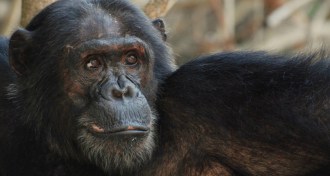 Anthropology
AnthropologyStrategy, not habitat loss, leads chimps to kill rivals
Human impacts on chimpanzees have not increased their violence.
By Bruce Bower -
 Animals
AnimalsMama deer respond to the cries of human babies
Deer mothers approached a speaker playing distress calls of young mammals when the frequency fell into the same range as fawns.
-
 Psychology
PsychologyTraining the overweight brain to abstain
A new study shows that brain changes are associated with a weight-loss behavioral intervention, but it may be a while before we can train our brains to prefer peppers over pork chops.
-
 Agriculture
AgricultureDrug-resistant staph can cling to farm workers for days
Agricultural exposure to staph bacteria could threaten the health of laborers and people who live near farms, a study of pig farm workers suggests.
By Beth Mole -
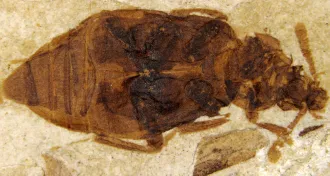 Paleontology
PaleontologyFossil beetles show earliest signs of active parenting
Ancient beetles that thrived off of dead and decaying flesh may have been among the first creatures to actively care for their young.
-
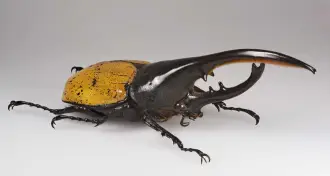 Animals
AnimalsRhinoceros beetle’s horn shape reflects fighting style
The elaborate horns of rhinoceros beetles vary in subtle ways that allow each species to handle the stress and strain of its specific style of battle.
-
 Psychology
PsychologyIn PTSD, a good night’s sleep means feeling safe
Studies of PTSD in rats have usually focused on fear and trauma. But a new study in humans shows that learning about safety may be important as well.
-
 Life
LifeVagina bacteria make molecules that could be drugs
Microbes on the human body are capable of producing thousands of small molecules that hold potential as drugs.
-
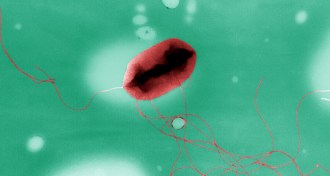 Microbes
MicrobesVaccines and gut microbes join forces to fight flu
Losing gut microbes weakens the protective ability of the flu vaccine in mice.
By Nsikan Akpan -
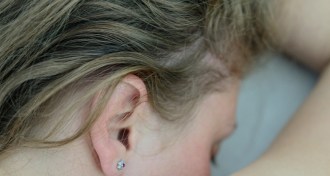 Neuroscience
NeuroscienceOur brains sort words as we sleep
Even after nodding off, a person’s brain correctly sorts words into categories, adding to the achievements of the sleeping brain.